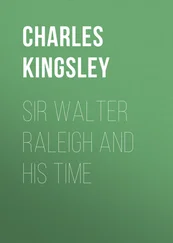Charles King - Campaigning with Crook, and Stories of Army Life
Здесь есть возможность читать онлайн «Charles King - Campaigning with Crook, and Stories of Army Life» — ознакомительный отрывок электронной книги совершенно бесплатно, а после прочтения отрывка купить полную версию. В некоторых случаях можно слушать аудио, скачать через торрент в формате fb2 и присутствует краткое содержание. Жанр: foreign_prose, на английском языке. Описание произведения, (предисловие) а так же отзывы посетителей доступны на портале библиотеки ЛибКат.
- Название:Campaigning with Crook, and Stories of Army Life
- Автор:
- Жанр:
- Год:неизвестен
- ISBN:нет данных
- Рейтинг книги:5 / 5. Голосов: 1
-
Избранное:Добавить в избранное
- Отзывы:
-
Ваша оценка:
- 100
- 1
- 2
- 3
- 4
- 5
Campaigning with Crook, and Stories of Army Life: краткое содержание, описание и аннотация
Предлагаем к чтению аннотацию, описание, краткое содержание или предисловие (зависит от того, что написал сам автор книги «Campaigning with Crook, and Stories of Army Life»). Если вы не нашли необходимую информацию о книге — напишите в комментариях, мы постараемся отыскать её.
Campaigning with Crook, and Stories of Army Life — читать онлайн ознакомительный отрывок
Ниже представлен текст книги, разбитый по страницам. Система сохранения места последней прочитанной страницы, позволяет с удобством читать онлайн бесплатно книгу «Campaigning with Crook, and Stories of Army Life», без необходимости каждый раз заново искать на чём Вы остановились. Поставьте закладку, и сможете в любой момент перейти на страницу, на которой закончили чтение.
Интервал:
Закладка:
No fires are lighted, except a few tiny blazes in deep-dug holes, whence no betraying flame may escape. Horses and men, we bivouac in a great circle along the steep banks of a sluggish stream. The stars shine brightly overhead, but in the timber the darkness is intense. Mason, my captain, and I are just unstrapping our blankets and preparing for a nap, when Lieutenant Forbush, then adjutant of the regiment, stumbles over a fallen tree, and announces that Company "K" is detailed for guard and picket. I had "been on" all the night before with Captain Hayes, and would gladly have had a sound sleep before the morrow's work; but when Mason, after reporting for orders to General Merritt, comes back and tells me that I am to have command of the outposts to the southeast, the direction from which the foe must come, there is compensation in the supposed mistake in the roster.
We grope out in the darkness, and post our pickets in hollows and depressions, where, should the bivouac be approached over the distant ridges, they can best observe objects against the sky. The men are tired; and, as they cannot walk post and keep awake, the utmost vigilance is enjoined on non-commissioned officers. Hour after hour I prowl around among the sentries, giving prompt answer to the muffled challenge that greets me with unvarying watchfulness. At one o'clock Colonel Mason and I, making the rounds together, come suddenly upon a post down among the willows next the stream, and are not halted; but we find the sentinel squatting under the bank, only visible in the starlight, apparently dozing. Stealing upon him from behind, I seize his carbine, and the man springs to his feet. Mason sternly rebukes him for his negligence, and is disposed to order him under guard; but old Sergeant Schreiber, who was never known to neglect a duty in his life, declares that he and the sentry were in conversation, and watching together some object across the stream not half a minute before we came upon them. Everywhere else along our front we find the men alert and watchful. At three o'clock the morning grows chilly, and the yelping of the coyotes out over the prairie is incessant. My orders are to call the General at half-past three; and, making my way through the slumbering groups, I find him rolled in his blanket at the foot of a big cottonwood, sleeping "with one eye open," for he is wide awake in an instant, and I return to my outpost towards the southeast.
Outlined against the southern sky is a high ridge, some two miles away. It sweeps around from our left front, where it is lost among the undulations of the prairie. Square to the northeast, some twenty miles distant, the southernmost masses of the Black Hills are tumbled up in sharp relief against the dawn. A faint blush is stealing along the Orient; the ridge line grows darker against the brightening sky; stars overhead are paling, and the boughs of the cottonwoods murmur soft response to the stir of the morning breeze. Objects near at hand no longer baffle our tired eyes, and the faces of my comrades of the guard look drawn and wan in the cold light. We are huddled along a slope which did well enough for night watching; but, as the lay of the land becomes more distinct, we discern, four hundred yards farther out to the southeast, a little conical mound rising from a wave of prairie parallel to our front but shutting off all sight of objects between it and the distant range of heights, so I move my outpost quickly to the new position, and there we find unobstructed view.
To our rear is the line of bluffs that marks the tortuous course of the stream, and the timber itself is now becoming mistily visible in the morning light. A faint wreath of fog creeps up from the stagnant water where busy beavers have checked its flow, and from the southward not even an Indian eye could tell that close under those bluffs seven companies of veteran cavalry are crouching, ready for a spring.
Turning to the front again, I bring my glasses to bear on the distant ridge, and sweep its face in search of moving objects. Off to the right I can mark the trail down which we came the night before, but not a soul is stirring. At half-past four our horses, saddled and bridled, are cropping the bunches of buffalo grass in the "swale" behind us; the four men of the picket are lying among them, lariat in hand. Corporal Wilkinson and I, prone upon the hill-top, are eagerly scanning the front, when he points quickly to the now plainly lighted ridge, exclaiming:
"Look, lieutenant – there are Indians!"
Another minute, and two miles away we sight another group of five or six mounted warriors. In ten minutes we have seen half a dozen different parties popping up into plain sight, then rapidly scurrying back out of view. At five o'clock they have appeared all along our front for a distance of three miles, but they do not approach nearer. Their movements puzzle me. We do not believe they have seen us. They make no attempt at concealment from our side, but they keep peering over ridges towards the west, and dodging behind slopes that hide them from that direction.
General Merritt has been promptly notified of their appearance, and at 5.15 he and General Carr and two or three of the staff ride out under cover of our position, and, dismounting, crawl up beside us and level their glasses.
"What can they be after? What are they watching?" is the question. The Black Hills road is off there somewhere, but no travel is possible just now, and all trains are warned back at Taylor's camp. At half-past five the mystery is solved. Four miles away to the southwest, to our right front, the white covers of army wagons break upon our astonished view. It must be our indefatigable Quartermaster Hall with our train, and he has been marching all night to reach us. He is guarded by two companies of stalwart infantry, but they are invisible. He has stowed them away in wagons, and is probably only afraid that the Indians won't attack him. Wagon after wagon, the white covers come gleaming into sight far over the rolling prairie, and by this time the ridge is swarming with war-parties of Cheyennes. Here you are, beggarly, treacherous rascals; for years you have eaten of our bread, lived on our bounty. You are well fed, well cared for; you, your pappooses and ponies are fat and independent; but you have heard of the grand revel in blood, scalps, and trophies of your brethren, the Sioux. It is no fight of yours. You have no grievance, but the love of rapine and warfare is the ruling passion, and you must take a hand against the Great Father, whom your treaty binds you to obey and honor. And now you have stuffed your wallets with his rations, your pouches with heavy loads of his best metallic cartridges, all too confidingly supplied you by peace-loving agents, who (for a consideration) wouldn't suspect you of warlike designs for any consideration. You are only a day's march from the reservation; and here, you think, are your first rich victims – a big train going to the Black Hills unguarded. No wonder you circle your swift ponies to the left in eager signals to your belated brethren to come on, come on. In half an hour you'll have five hundred here, and the fate of those teamsters and that train is sealed.
"Have the men had coffee?" asks General Merritt, after a leisurely survey. "Yes, sir," is the adjutant's report. "Then let them saddle up and close in mass under the bluffs," is the order, and General Carr goes off to execute it.
The little hill on which we are lying is steep, almost precipitous on its southern slope, washed away apparently by the torrent that in the rainy season must come tearing down the long ravine directly ahead of us; it leads down from the distant ridge and sweeps past us to our right, where it is crossed by the very trail on which we marched in, and along which, three miles away, the wagon train is now approaching. The two come together like a V, and we are at its point, while between them juts out a long spur of hills. The trail cannot be seen from the ravine, and vice versa , while we on our point see both. At the head of the ravine, a mile and a half away, a party of thirty or forty Indians are scurrying about in eager and excited motion. "What in thunder are those vagabonds fooling about?" says Buffalo Bill, who has joined us with Tait and Chips, two of his pet assistants. Even while we speculate the answer is plain. Riding towards us, away ahead of the wagon train, two soldiers come loping along the trail. They bring despatches to the command, no doubt, and, knowing us to be down here in the bottom somewhere, have started ahead to reach us. They see no Indians; for it is only from them and the train the wily foe is concealed, and all unsuspicious of their danger they come jauntily ahead. Now is the valiant red man's opportunity. Come on, Brothers Swift Bear, Two Bulls, Bloody Hand; come on, ten or a dozen of you, my braves – there are only two of the pale-faced dogs, and they shall feel the red man's vengeance forthwith. Come on, come on! We'll dash down this ravine, a dozen of us, and six to one we'll slay and scalp them without danger to ourselves; and a hundred to one we will brag about it the rest of our natural lives. Only a mile away come our couriers; only a mile and a half up the ravine a murderous party of Cheyennes lash their excited ponies into eager gallop, and down they come towards us.
Читать дальшеИнтервал:
Закладка:
Похожие книги на «Campaigning with Crook, and Stories of Army Life»
Представляем Вашему вниманию похожие книги на «Campaigning with Crook, and Stories of Army Life» списком для выбора. Мы отобрали схожую по названию и смыслу литературу в надежде предоставить читателям больше вариантов отыскать новые, интересные, ещё непрочитанные произведения.
Обсуждение, отзывы о книге «Campaigning with Crook, and Stories of Army Life» и просто собственные мнения читателей. Оставьте ваши комментарии, напишите, что Вы думаете о произведении, его смысле или главных героях. Укажите что конкретно понравилось, а что нет, и почему Вы так считаете.












